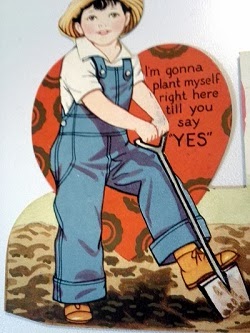It’s an odd little number: eleven. It’s odd in the way it looks and even when one attempts
to say it: eleven. Mathematically, it’s
an odd number as well: eleven. It’s
never particularly been one of my favorite numbers.
Yet its three-fold significance today is known and felt around
the world: “On the 11th day of
the 11th month at the 11th hour.”
Anyone who knows their history understands this phrase. The
year was 1918, and that month, date, and hour was when the “War to End All
Wars” officially ended.¹
That war, known as “the Great War” at the time, would
eventually become known as World War I. The war, unfortunately, didn’t end all
wars even though it was one of the most costly wars in history. Over nine
million troops were killed, 21 million more were wounded, and some ten million
civilians also died as a result of the war.¹
But why does the number eleven appear in all of this? It
seems that by the month of November in 1918, the Germans had finally “had
enough” and signed a cease-fire a little after 5:00 a.m. on the morning of
November 11th that year. It was decided that the official treaty would
go into effect six hours later, when it would be 11:00 a.m. in France, where
the cease-fire was signed.² From that point forward, that date, time, and hour
emerged as an historic phrase.
To celebrate the end of the Great War, the United States
observed it as Armistice Day beginning in 1919, but ultimately changed it to
Veterans Day in 1954 in order to honor all veterans.³ This important day is
also observed in many countries around the world in some form or another.
I’m very proud to have had a grandfather and two grand
uncles who served in WWI and am extremely thankful that they survived this
ordeal. My grand uncle, Emile Frances Sanford (1898 – 1972), served in Company
I of the 28th Infantry and was slightly wounded on July 31, 1918.
(See photo.) According to my grandmother, his wife and his children, he was
cited for bravery for carrying messages continually over ‘no-man’s land’ during
the battle of Cantigny in May of 1918.
Another grand uncle, James Alonzo “Lonnie” Sanford (1902 –
1957), followed his older brother into the military, lying about his age in
order to serve. I remember my Grandmother telling me that story and how he was
reported as missing in action and presumed dead. He miraculously came home at
the end of the war without any notification to the family whatsoever!
My grandfather, Baxter H. Wallace (1895 - 1958) served in
Company H of the 101st in the United States Army. One of my uncles
told me that he was gassed at Verdun and sent home. Since my Mother was born in
January of 1919, I’m extremely happy that he made it home before the number eleven played its part in the end of that war.
The number eleven was lucky for all three of them. They
survived. So many others didn’t, and we remember them and so many others who
lost their lives during warfare on Memorial Day each year.
Veterans Day is meant to honor all who served, and my
heartfelt thanks go out to each of you.
I think I’m beginning to like that little number: eleven. It rolls easily off my tongue
now: eleven. Mathematically, it’s
still an odd number: eleven.
¹ HISTORY.com. This Day in History. “Nov. 11, 1918: World
War I Ends.” http://www.history.com/this-day-in-history/world-war-i-comes-to-an-end
² Gaylord, Chris. The
Christian Science Monitor. “Veterans Day: Why America
chose November 11.” Nov. 11, 2011.
³ The U.S. Department of Veterans Affairs - The Office of Public and Intergovernmental Affairs: “History
of Veterans Day.” http://www.va.gov/opa/vetsday/vetdayhistory.asp
@2014 Copyright by Carla Love Maitland



.jpg)












